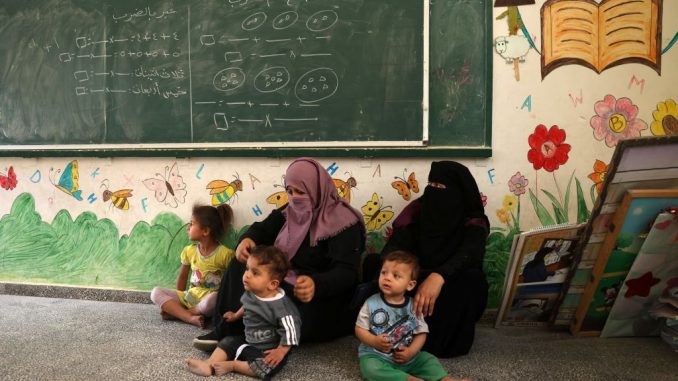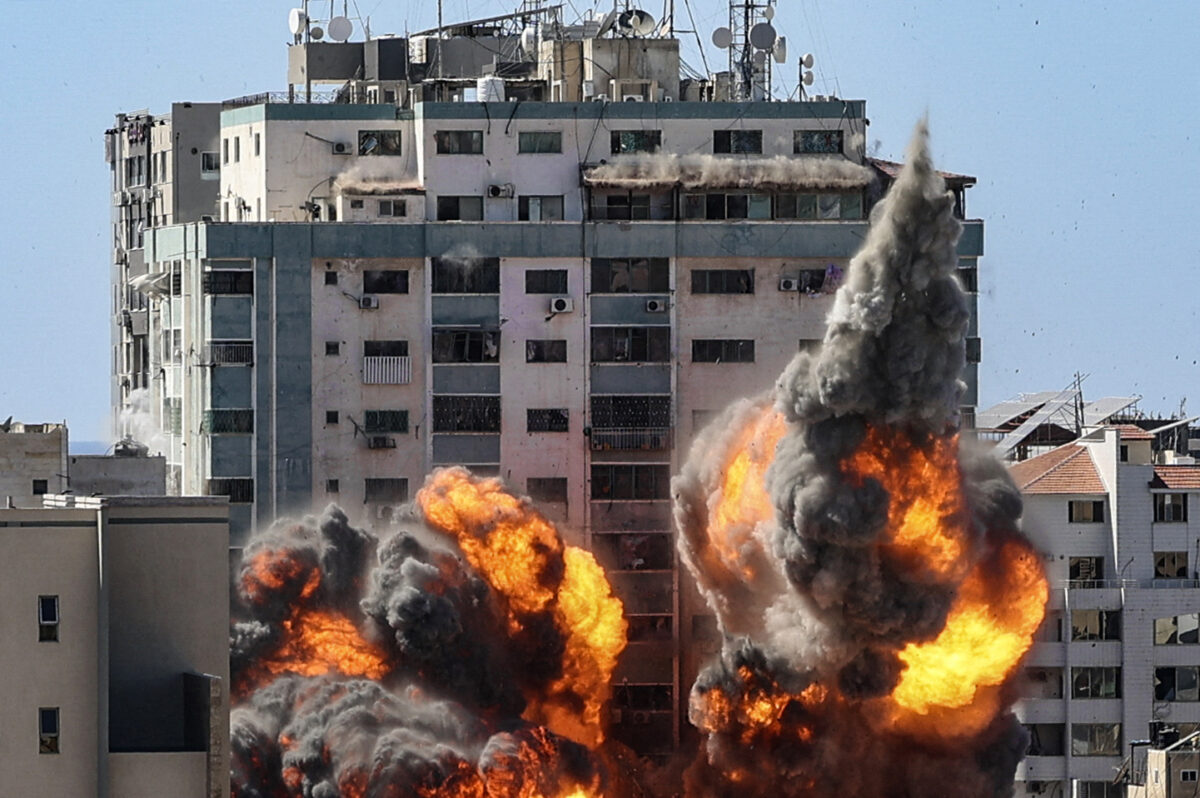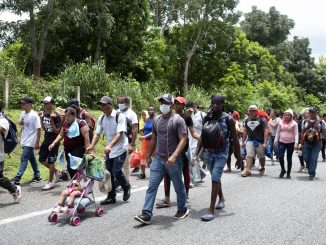
Experts are calling on Canada lawmakers to pass laws aimed at sanctioning the use of “human shields,” amid reports of terrorist group Hamas is using civilians as a cover for military assets in its recent crossfire with Israel.
In a report (pdf) released by the Macdonald-Laurier Institute (MLI) and the Canadian Coalition Against Terror (C-CAT), the experts noted that the use of humans as shields by terrorists groups can effectively lower the efficacy of militaries from democratic and law-abiding countries.
The report also included a draft legislation, suggesting Canadian lawmakers take action against the use of human shields. The draft involves sanctions and “naming and shaming,” as outlined in the Forward section of the report co-authored by MLI senior fellow Sarah Teich and David Matas, an international human rights lawyer and senior fellow at the Raoul Wallenberg Centre for Human Rights.
Other than Hamas, the report has named a number of terrorist entities that have also used this tactic, including ISIS, the Taliban, Hezbollah, Boko Haram, Al Shabab, and Houthi in Yemen.
“Combatants who use humans as shields are giving priority to defeating the perceived enemy over protecting their own civilian population. The combatants are making the statement that hatred of the perceived enemy means more to them than the lives of their own people. Combatting the use of human shields means combatting this hatred,” they wrote in a report (pdf) titled “Protecting Innocents in Combat.”
“The use of civilians as human shields has only been growing, and this is a real challenge for rights-respecting, democratic states that aim to combat terrorism while protecting and safeguarding human life,” the report stated.
Danny Eisen, the founder of C-CAT and co-author of the report, noted that the rights-violator list also includes state entities like Iran’s Islamic Revolutionary Guard Corps, which shot down Ukrainian Airlines Flight PS752 in January 2020, claiming 177 lives, including 55 Canadian citizens and 81 permanent residents.
“This use of commercial air traffic as a form of human shield by Iran is entirely consistent with the regime’s multi-billion-dollar sponsorship of terror proxies like Hamas and Hezbollah which are amongst the globe’s most egregious perpetrators of human shields-related violations,” Eisen said.

Action Against Human Shields
According to the report, terrorist groups may seek to maximize the death toll of civilians used to shield a military objective, because they will then be able to shift the blame away from themselves in the courtroom. This is a strategic “win-win” for those rights-violators, as they are also “manipulating democratic legal systems in an effort to undermine, defame, and delegitimize the counterterrorism or military efforts of democracies.”
The use of human shields is universally banned under international law and has been explicitly condemned by international organizations, such as the United Nations Security Council and the North Atlantic Treaty Or ganization (NATO).
However, the killing of human shields may not be considered a violation of the laws of war—the part of international law that regulates the conducts of warring parties—if the loss of civilian life is not excessive compared to the military advantage anticipated, as stated in Protocol I to the 1949 Geneva Convention. The report stated that this implies the legality of using human shields, which would likely make the practice even more common.
The report has also found a lack of a follow-up in domestic legislation against the use of human shields, despite international prohibition of the practice being adopted as early as in the 1949 Geneva Convention.
The first domestic legislation aimed at sanctioning the crime was signed into law by former U.S. President Donald Trump in December 2018. The U.S. “Sanctioning the Use of Civilians as Defenseless Shields Act” (“U.S. Human Shields Act”) specifically targets terror groups Hamas and Hezbolla for mandatory sanction, and permissive sanctions for all other foreign individuals and entities that employ this military tactic.
“What we establish in this publication is the need and ability for Canada, as a human rights leader, to heed international consensus, answer NATO’s call to action and pass legislation to deter and sanction the use of human shields,” Teich said.






Be the first to comment